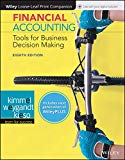
Concept explainers
(a)
Adjusting entries refers to the entries that are made at the end of an accounting period in accordance with revenue recognition principle, and expenses recognition principle. The purpose of adjusting entries is to adjust the revenue, and the expenses for the period in which they actually occurred.
Adjusting entries are classified into two categories. They are as follows,
- Deferrals, or
- Accruals.
Deferrals:
Deferrals refer to the revenues that are collected in advance before the services are provided or sales are made to the customer, and the expenses are paid in advance before the expenses are incurred.
Deferrals are classified into two types. They are prepaid expenses, and unearned revenues.
Prepaid expenses: The expenses are paid in cash, before they are incurred.
Unearned revenue: The cash is received, before the services are performed.
To identify: Theitems that may result in adjusting entries for deferrals.
(b)
Accruals:
Accruals refer to the revenues that are generated from goods delivered or, service performed to the customer, but cash is not yet received from the customer, and the expenses are incurred, but cash is not yet paid.
Accruals are classified into two types. They are accrued revenues, and accrued expenses.
Accrued revenues: Revenues are generated but not yet received in cash.
Accrued expenses: Expenses are incurred but not yet paid in cash.
To identify: The two items that may result in adjusting entries for accruals.
(c)
To identify: The amount of
(d)
To identify: The amounts of income tax reported in the
Want to see the full answer?
Check out a sample textbook solution
Chapter 4 Solutions
Financial Accounting: Tools for Business Decision Making, 8e WileyPLUS (next generation) + Loose-leaf
- Jbl company problem sopve it.arrow_forwardHow much intrest bank collect?arrow_forwardRequired information Skip to question [The following information applies to the questions displayed below.]XYZ declared a $1 per share dividend on August 15. The date of record for the dividend was September 1 (the stock began selling ex-dividend on September 2). The dividend was paid on September 10. Ellis is a cash-method taxpayer. Determine if he must include the dividends in gross income under the following independent circumstances. b. Ellis bought 100 shares of XYZ stock on August 1 for $21 per share. Ellis sold his XYZ shares on September 5 for $23 per share. Ellis received the $100 dividend on September 10 (note that even though Ellis didn’t own the stock on September 10, he still received the dividend because he was the shareholder on the record date).arrow_forward
 Financial AccountingAccountingISBN:9781337272124Author:Carl Warren, James M. Reeve, Jonathan DuchacPublisher:Cengage Learning
Financial AccountingAccountingISBN:9781337272124Author:Carl Warren, James M. Reeve, Jonathan DuchacPublisher:Cengage Learning Financial Accounting: The Impact on Decision Make...AccountingISBN:9781305654174Author:Gary A. Porter, Curtis L. NortonPublisher:Cengage Learning
Financial Accounting: The Impact on Decision Make...AccountingISBN:9781305654174Author:Gary A. Porter, Curtis L. NortonPublisher:Cengage Learning Excel Applications for Accounting PrinciplesAccountingISBN:9781111581565Author:Gaylord N. SmithPublisher:Cengage Learning
Excel Applications for Accounting PrinciplesAccountingISBN:9781111581565Author:Gaylord N. SmithPublisher:Cengage Learning


